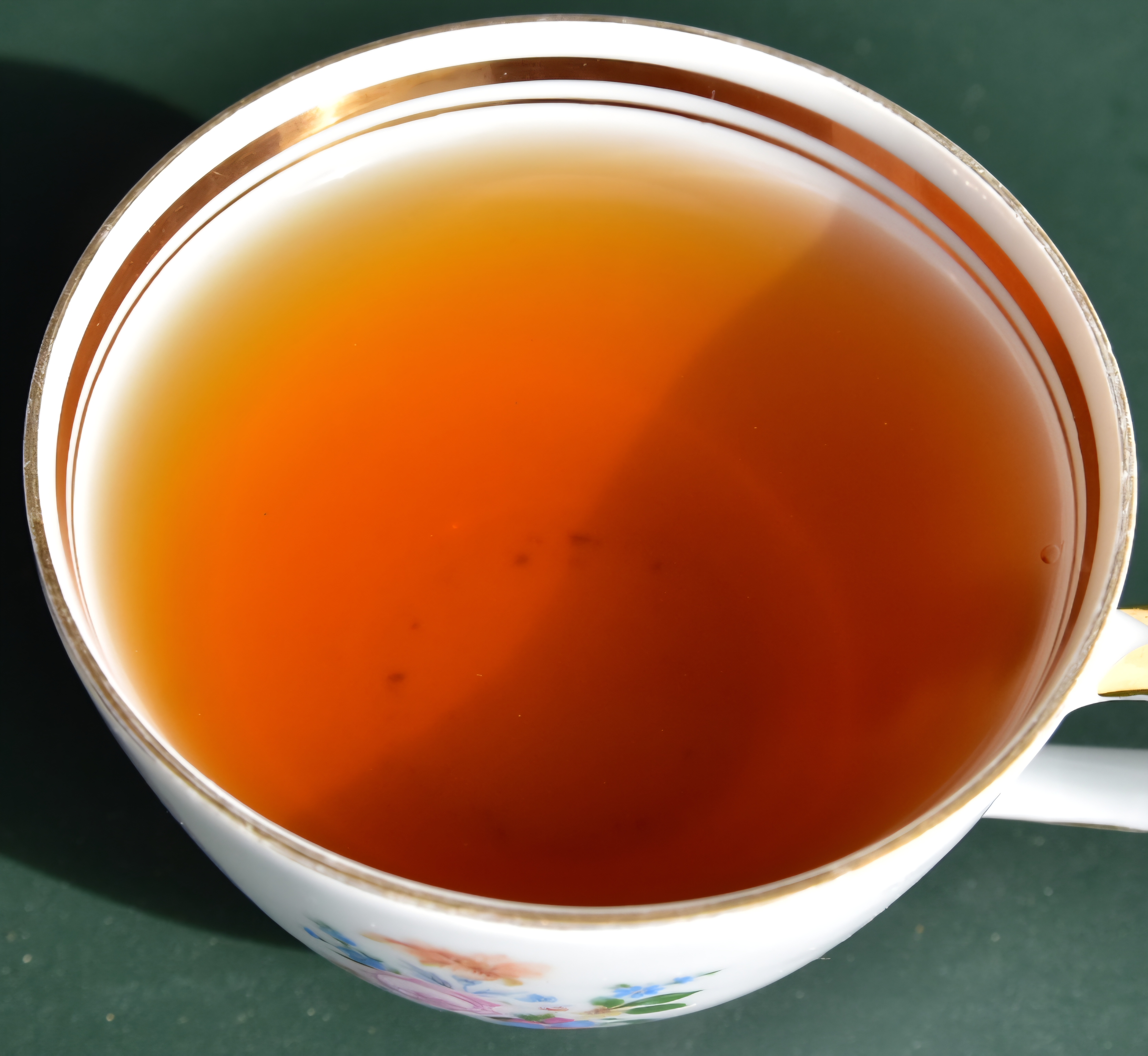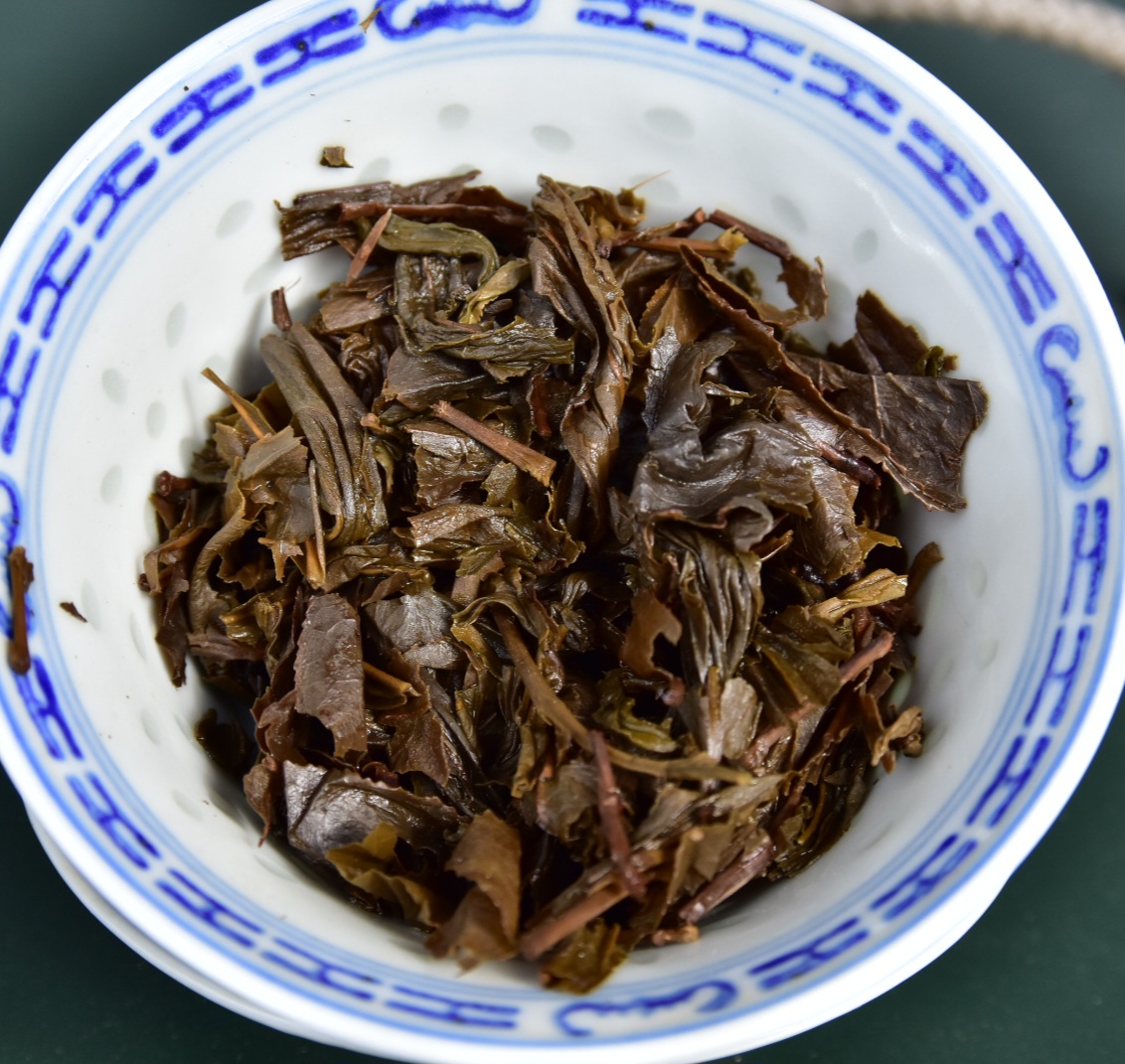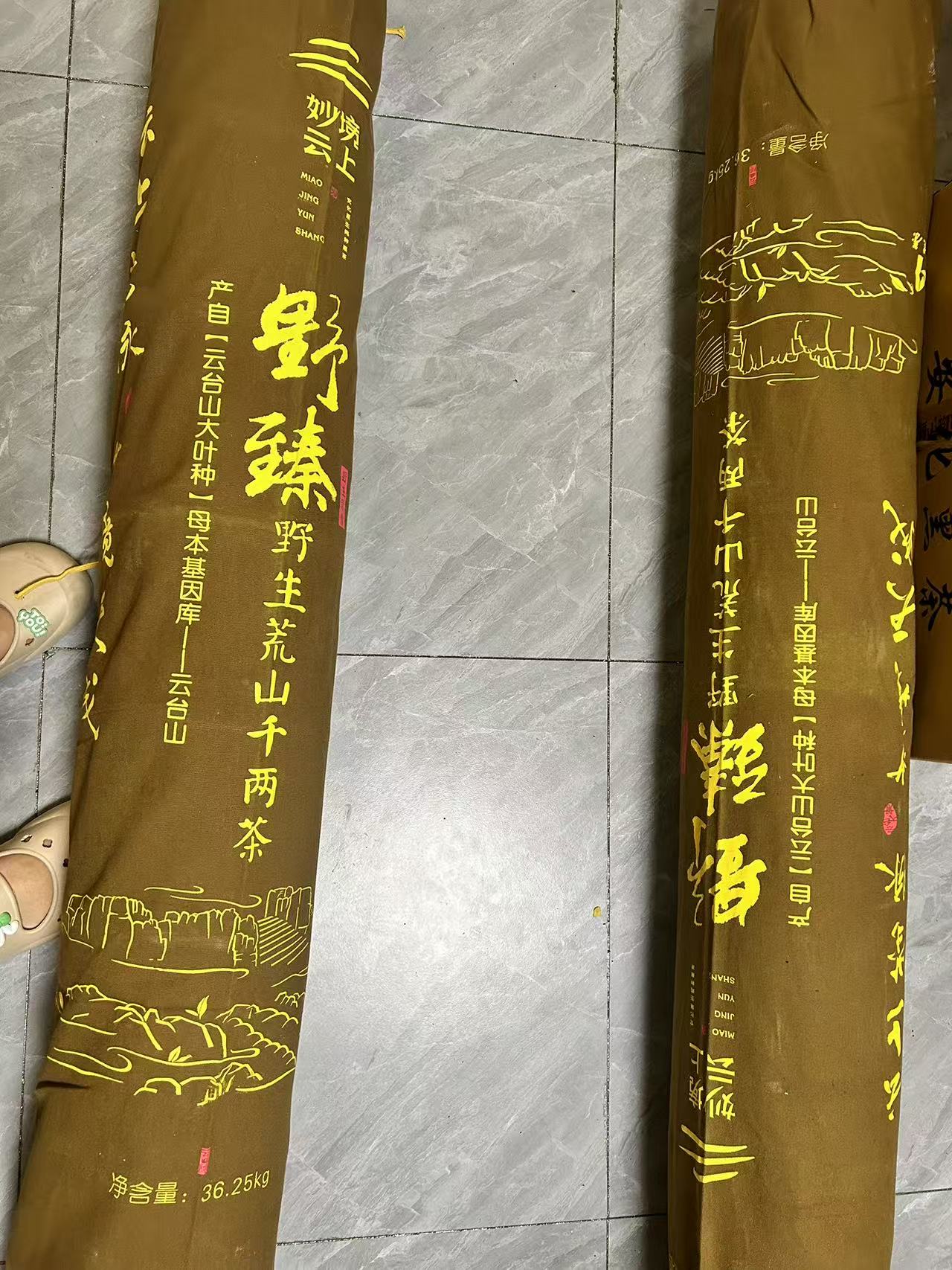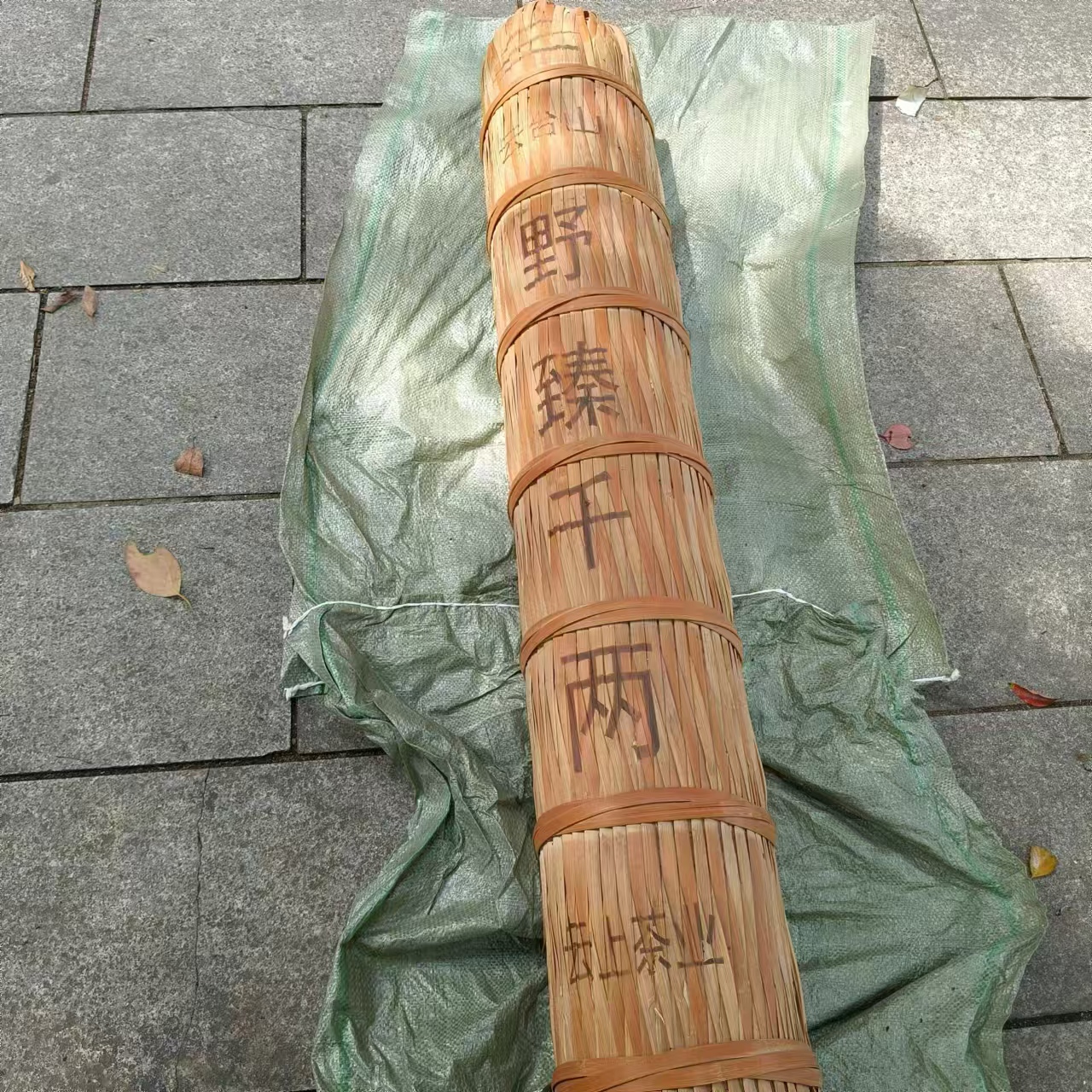- Production year: 2018
- Storage: Hunan
- Month cut: August 2025
- Log weight: 36.25 kg
- Slice weight: ~700g / slice (+/- 10%)
- Price: USD 70 / slice
- Availability: In stock (restocked January 2026, last remaining slices from log)
Yunshang’s (云上) history goes back to around 2008, when the company opened the first gardens. Over time they gradually acquired more land in peripheral areas of Yuntaishan with plenty of supposedly (recently) untended gardens of older trees. Their factory was built in 2014 and they began producing teas the same year. From 2016 their main series of teas (and distributor relations) were established. The company’s premium Yunyin (云隐) series quickly became a favorite among Anhua heichas fans.
Between 2016 and 2020, Yunshang produced two Qianliang teas under their Yunyin series; the 野臻千两 (Yezhen Qianliang) and the 大叶千两 (Daye Qianliang). Some of you will have tried the latter from one of the two group buys I did for the 2016 production (the first batch). But it was the Yezhen that I encountered first — the first QLC from Yunshang I tried, and also the first QLC of any kind I ever bought a full slice of.
That’s the same tea — and the same production year — now on offer here. 200 logs were made in 2018. I haven’t seen a full log of this tea being split in the four years that have passed since I got my first slice, so I was pretty excited when two logs were recently split.
The Yezhen QLC is very different from the Daye QLC. Daye has a “classical” profile (with 3rd–4th grade leaves), and can veer into more tart territory when pushed hard. Yezhen (2nd–3rd grade leaves) is more erratic and unorthodox for a QLC, with a good amount of bitterness that resolves into sweetness . The latter is also a tea I believe still has far to go in terms of improving through aging, despite being enjoyable already.
I once compared the two teas to Ivan/Alyosha in Brothers Karamazov or Daiyu/Baochai in Dream of the Red Chamber. If nothing else, I believe the fact that I would make this awkward comparison says something about the regard I hold these two teas in. If pushed to choose a favorite among them though I’d have to go with the Yezhen, partially for being the more unique and punchy of the two.
Note: This tea may contain golden flowers (Jinhua/金花), a perfectly natural occurrence in certain heicha teas. Their development depends on factors like microbial activity, storage conditions, and time. However, individuals with Celiac Disease or severe gluten allergies should exercise caution, as we cannot guarantee that no wheat-based materials were involved at any stage of production.



